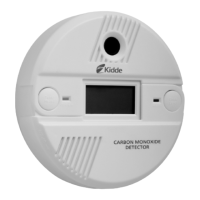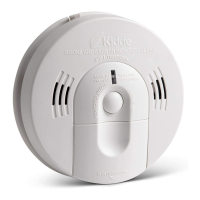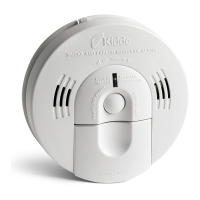21
Carbon Monoxide Safety
Carbon Monoxide
Carbon monoxide (CO) is an odorless, colorless,
poisonous gas created when any fuel is burned – gasoline,
propane, natural gas, oil, wood, coal, and even tobacco.
When combustion air is limited, more CO is produced.
Serious problems can develop when combustion by-
products are not properly vented outside the house.
You’ve probably heard about carbon monoxide poisoning
in the news recently. It’s a problem receiving more
attention because groups like the American Lung
Association and the Consumer Product Safety Commission
have made it a priority to warn the public about the
dangers of this deadly household poison.
The Effects of CO Exposure
When you breathe carbon monoxide, it enters your
bloodstream through your lungs and attaches to red blood
cells. These red blood cells, called hemoglobin, carry
oxygen throughout your body. Carbon monoxide
molecules attach to the red blood cells 200 times faster
than oxygen, preventing the flow of oxygen to your heart,
brain and vital organs. As carbon monoxide accumulates
in your bloodstream, your body becomes starved for
oxygen. The amount of carbon monoxide in a person’s
body can be measured by a simple blood test, called a
“carboxyhemoglobin level” test .
The early symptoms of carbon monoxide poisoning are
often mistaken for the flu – headache, dizziness,
weakness, nausea, vomiting, sleepiness, and confusion.
Your Family May Be at Risk from CO Poisoning
While anyone is susceptible, experts agree that unborn
babies, small children, senior citizens and people with
heart or respiratory problems are especially vulnerable to
CO and are at the greatest risk for death or serious injury.

